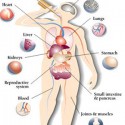How Residential Drug Treatment Centers Help You Stay Sober
As a lifestyle of its own, drug addiction leaves many a person at the mercy of their drug of choice. What starts out as a recreationalpursuit becomes a series of inescapable urges to use no matter what the consequences may be. The decision to live drug-free takes a considerable amount of courage and insight, and still many people take that step.
A report from the National Institute on Drug Abuse defines addiction as a complex illness that takes over a person’s will and reasoning. Residential drug treatment centers provide the type of guidance and support a person needs in order to follow through on the decision to live a drug-free lifestyle.
The Recovery Process

Residential treatment centers provide the optimal environment for getting sober, and the resources to stay sober.
Residential drug treatment centers mark the first step on the path to recovery for many people. Recovery, in and of itself is a process that requires a good solid foundation on how to manage an addiction problem. Since the effects of drug addiction actually change how a person’s brain functions, it can be all but impossible to stop using by sheer force of will. Residential drug treatment centers provide the type of structured environment where a person can regain control of his or her will and ability to reason effectively.
Without a clear knowledge and awareness of addiction’s effects, recovering addicts are doomed to return to the addiction lifestyle. Residential drug treatment centers approach addiction treatment as part of a lifelong recovery process. Much like the importance of a building’s foundation, the education, guidance and supports offered through residential drug treatment centers equips recovering addicts for the long haul that is the recover process.
Recovery from the Inside-Out
For many addicts, drugs become a way to self-medicate against a sense of inner turmoil, typically caused by underlying, unresolved emotional or psychological issues. As a result, not only do these issues remain unresolved but the brain and body undergo considerable damage in the process. By the time a person reaches the point where enough is enough, there’s little left of “the person” to follow through on the decision.
While detoxification treatment is a must-do part of the treatment process, residential drug treatment centers place as much importance on treating the underlying issues and problems that drove a person to addiction. Recovery from the inside-out means treating both the physical and psychological forces that drive the addiction process. In essence, treating one and not the other leaves a person that much more likely to relapse.
Residential Drug Treatment Centers
While physical cravings and psychological need drive much of the addiction process, a person’s external environment also helps perpetuate the urge to use drugs. People, places and situations can easily trigger a person’s cravings making the challenge of staying sober that much more difficult. The structured, controlled environment of a residential drug treatment center removes these temptations and enables a person to develop the type of mindset needed to maintain sobriety. In effect, these programs offer the type of ongoing education, counseling and social supports needed to continue on in the recovery process long after a person completes the treatment program.

